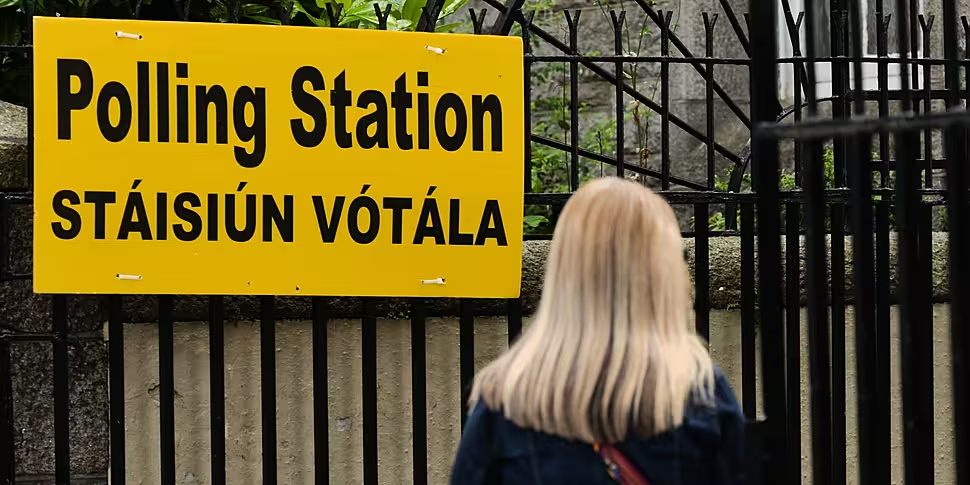On Friday, people will go to the polls to decide whether the Constitution should be changed.
On the day, voters will be presented with two ballot papers.
In the first - the Family Amendment - they will be asked whether the constitutional definition of the family should be changed so that it is described as being “founded on marriage or on other durable relationships”.
The second - the Care Amendment - will ask voters if they wish to delete two constitutional articles – one that refers a woman’s “life within the home” and the other to her ‘duties in the home’.
Should they vote yes, a new provision about carers will be inserted, which will say that the State will recognise “that the provision of care, by members of a family to one another by reason of the bonds that exist among them, gives to Society a support without which the common good cannot be achieved”.
On The Pat Kenny Show today, listeners messaged in looking for impartial answers to their questions from An Coimisiún Toghcháin Chair Justice Marie Baker.
One texter asked what impact a Yes vote in the Care Amendment would have on unmarried mothers.
“There is a question that’s unresolved in the case law, as to whether the existing article respects the role of women in the home and the role of mothers applies only to married women and married mothers,” Justice Baker said.
“That has never been resolved… There is a view that it actually protects only married women and only married mothers working in the home.
“If the referendum is passed, that issue is resolved.”
Durable relationships
Another listener described themselves as “single by choice” but was concerned a future boyfriend would have a claim on their property if the Family Amendment is passed.
“You can’t end up in a durable relationship by accident,” Justice Baker
“You must mean it.”
Justice Baker also noted that there are already legal protections for people who are cohabiting.
“The present law provides… that you may well find that your boyfriend or girlfriend comes to own part of the house if they pay part of the mortgage,” she said.
“This is ancient law, it’s the old equitable principles from the 19th century; contribution to the acquisition of property gives you a right to the property.
“I would say, if you are being sensible, that you would enter into a cohabitation agreement with somebody before you ended up doing that.”
We are out and about meeting fishermen in Kilmore Quay and answering questions about the referendums taking place this Friday 8 March. #YourVoteYourVoice #Wexford pic.twitter.com/WJXyDIL4Yg
— An Coimisiún Toghcháin, The Electoral Commission (@ElecCommIRL) March 5, 2024
Justice Baker was also asked if a person could have two ‘durable relationships’ at the same time.
“Given that a relationship is one of equality between people, it would seem on current thinking the answer is no,” she said.
“But there are people who have multiple sexual partners, that is probably, from their point of view, their private life - rather than their family life.”
Clarity
Another listener texted in to ask why the amendments’ wordings were “deliberately vague and open to interpretation”?
“I think you should ask the politicians that,” Justice Baker said.
“We have these words; these are the words we’re trying to explain in an impartial way by relying on facts.”
📅 Dé hAoine an 8 Márta, caithfidh saoránaigh Éireannacha vóta in dhá Reifreann faoi Airteagal 41 an Bhunreachta.
Faigh tuilleadh eolais faoi na reifrinn ar ár suíomh gréasáin:https://t.co/H91Q56d6Ek#DoVótaDoGhuth pic.twitter.com/uEe9itXk7j— An Coimisiún Toghcháin, The Electoral Commission (@ElecCommIRL) March 1, 2024
One texter said they were unhappy at the amount of misinformation about the current wording of the Articles 41.2.1° and 41.2.2° and Justice Baker said facts and opinions should not be mixed up.
“There have been one or two occasions when An Coimisúin has called out a factual inaccuracy,” she said.
“We very early on called out the fact that the Constitution doesn’t say, ‘A woman’s place is in the home.’
“We called out something this week where there was a poster saying, ‘If this referendum passes, women will have to go out to work’ - that’s simply incorrect.”
Irish citizens over the age of 18 and who reside in the State are entitled to vote on Friday.
Main image: A Polling Station sign in Dublin. Photo by Artur Widak/NurPhoto









